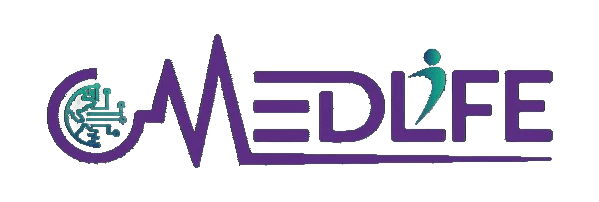Medical coding is an essential part of the healthcare system, serving as the bridge between healthcare providers and insurance companies. Without accurate medical coding, the entire healthcare reimbursement system would be inefficient and prone to errors. In this blog, Medlife will explore why medical coding is necessary and how it impacts the healthcare system from an operational and financial perspective.
1. Ensuring Accurate Billing and Reimbursement
One of the primary reasons we need medical coding is to ensure accurate billing and reimbursement. Every service, diagnosis, procedure, and medical condition has a corresponding code, which must be recorded correctly to avoid errors in claims.
- Medical billing and coding work together to provide healthcare providers with timely payments from insurance companies.
- Inaccurate coding can lead to underpayments or denials, which can directly affect a healthcare facility’s revenue stream.
- Professional medical coders help ensure that each patient encounter is documented accurately, making the reimbursement process smoother and faster.
Accurate coding is essential for submitting claims to insurance companies like Medicare, Medicaid, and private insurers. This ensures that healthcare providers are reimbursed for the services they provide, preventing revenue loss. MedLife Mbs specializes in providing accurate billing services to avoid such errors and streamline the reimbursement process.
2. Facilitating Efficient Healthcare Communication
Medical coding simplifies complex healthcare data and helps create a universal language that healthcare providers, insurers, and government agencies can understand. This standardized coding system allows different stakeholders in the healthcare system to communicate more effectively.
- International Classification of Diseases (ICD) and Current Procedural Terminology (CPT) codes allow providers and payers to understand what medical services were performed and why.
- It also enables healthcare providers to document and retrieve data efficiently, facilitating smoother communication between medical practitioners.
- By using standardized codes, medical professionals across the globe can share important data on diagnoses, treatments, and outcomes, improving the quality of care and global health statistics.
With precise coding, medical facilities can collaborate more effectively across departments and locations. This collaborative approach is crucial when dealing with complex cases that involve multiple specialists or treatment centers.
3. Enhancing Patient Care and Safety
Another critical reason for medical coding is the role it plays in patient care and safety. Accurate coding helps ensure that the patient’s medical history, treatments, and diagnoses are documented properly, which is crucial for ongoing care.
- Medical coders ensure that all procedures, treatments, and tests are coded correctly so that doctors can make informed decisions.
- Inaccurate coding can lead to mistakes in patient records, resulting in inappropriate treatments, which could harm the patient.
- It also ensures continuity of care when patients move from one healthcare provider to another, as accurate records will follow them through their journey.
A streamlined coding process can prevent miscommunications that may arise when transferring patient information between healthcare providers, reducing the risk of medical errors. MedLife Mbs supports medical practices by providing trained professionals who handle this vital task with accuracy.
4. Meeting Regulatory and Legal Requirements
Medical coding helps healthcare organizations meet various regulatory and legal requirements. With healthcare regulations becoming more complex, accurate medical coding ensures that medical practices remain compliant with state, federal, and payer requirements.
- The Health Insurance Portability and Accountability Act (HIPAA) sets strict standards for healthcare data, and coding systems like ICD and CPT help ensure compliance.
- By maintaining accurate records through medical coding, healthcare providers can avoid audits and penalties.
- Coding also helps in fulfilling requirements for quality reporting initiatives, which aim to improve healthcare standards across the country.
Healthcare facilities that do not comply with regulations can face fines, penalties, or loss of accreditation. With MedLife Mbs, you can rest assured that your medical coding will meet all regulatory standards, ensuring the smooth operation of your practice.
5. Supporting Healthcare Analytics and Research
Medical coding also plays a significant role in healthcare research and analytics. With the vast amount of data generated by healthcare providers every day, medical coding helps organize this data in a way that can be easily analyzed and utilized for research purposes.
- Coding provides a uniform method of capturing healthcare data, making it easier for researchers to identify trends, monitor public health issues, and improve patient outcomes.
- Government agencies and healthcare organizations can use coded data to study the effectiveness of treatments, track the spread of diseases, and make informed decisions on public health policies.
- It also aids in clinical research by providing standardized data that can be compared across different healthcare settings and populations.
Incorporating coding into healthcare analytics allows researchers and policy-makers to make data-driven decisions that improve patient care and public health.
6. Improving Financial Management in Healthcare Practices
In addition to ensuring proper reimbursement, medical coding contributes to the overall financial health of a medical practice. Accurate coding reduces billing errors, increases revenue, and prevents delays in payments, all of which are essential for the financial stability of a healthcare provider.
- By accurately documenting the services provided, coders help practices capture the full scope of revenue they are entitled to.
- Coding errors can be costly, leading to claim denials, audits, and even legal action. Ensuring that coding is accurate helps avoid these financial pitfalls.
- A well-trained coding team can also help healthcare providers identify opportunities for optimizing their revenue streams through more efficient billing practices.
With the support of professional medical coding services like those offered by MedLife Mbs, healthcare providers can ensure that their billing is accurate, their claims are processed promptly, and their revenue cycle is optimized.
The Key to Efficient Healthcare Billing
Medical coding is the backbone of the healthcare billing system, ensuring that healthcare providers are reimbursed for their services, enhancing patient care, and enabling healthcare providers to comply with regulatory standards. It is an indispensable tool in facilitating effective communication, improving financial management, and supporting healthcare research. Contact MedLife Mbs, we recognize the importance of accurate coding and offer comprehensive medical billing and coding services to help practices improve efficiency, minimize errors, and boost revenue.


